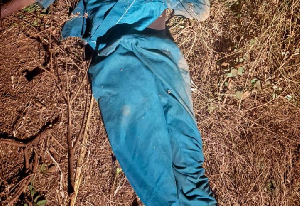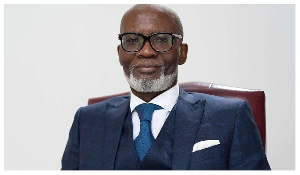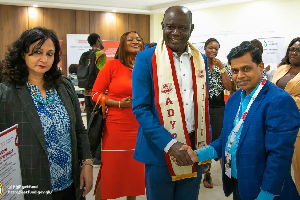Despite the spike in Coronavirus cases in the country, the federal government Thursday downplayed the possibility of imposing another total lockdown on parts of the country to mitigate the spread of the virus.
There has been a steady rise in the number of confirmed cases in recent times.
In its daily update Thursday, the Nigeria Centre for Disease Control (NCDC) announced 681 new cases of COVID-19 to bring the total to 14,554. Also, a total of 4,494 people have been discharged nationwide and 387 deaths recorded.
A breakdown of the fresh cases showed Lagos topping the chart with 345 new infections followed by Rivers - 51; Ogun - 48; Gombe - 47; Oyo - 36; Imo - 31; Delta - 28; Kano - 23; Bauchi - 18; Edo- 12; Katsina- 12; Kaduna - 9; Anambra - 7; Jigawa - 5; Kebbi - 4; Ondo - 4; and Nasarawa - 1.
However, reacting to fears of another possible lockdown imposed on Lagos and Ogun States and the Federal Capital Territory (FCT) for about six weeks at beginning of the pandemic, the Chairman of Presidential Task Force of COVID-19, Mr Boss Mustapha, ruled out the possibility of another total lockdown.
Mustapha, at the regular press briefing by the task force in Abuja, said another lockdown might not be necessary while the federal government in terms of strategic implementation of its policy would not be looking towards that direction as the country' "cannot be moving forward and begin to move backwards again."
His clarification was in response to a suggestion seeking to know if the federal government might be contemplating another review of the total lockdown in the light of the exponential daily increase in the number of cases.
He explained that the federal government would rather concentrate on how to strengthen what it had put in place, as well as to ensure compliance with all other non-pharmaceutical interventions already developed.
"I have indicated in my first address on this subject that we will study the situation, look at it and see how we are going. And if there is need for review that such will be advised by data, by science, by experiences of other jurisdictions and by the peculiarities of our environment.
To go back to a total lockdown must be taken into context of what we do desire to achieve after we locked down for about four or five weeks and see how we fare. So, the issue of review might not have that in contemplation because you can't move forward and begin to move backwards again.
In terms of strategic implementation of our policy, we might not be looking towards that direction, but we might be looking at how to strengthen what we have put in place, how to ensure compliance and all other non-pharmaceutical interventions we have put in place," Mustapha said.
According to him, the country has got to the state where every Nigerian must take responsibility and take ownership of how to navigate the pandemic to stay alive and survive it.
He said the government was working with the community and religious leaders and all forms of informal leaderships to cede the ownership of fighting the virus to the people.
He also expressed concern over the projection by the Director of the US National Institute of Allergy and Infectious Disease, Dr Anthony Fauci, projecting 200,000 Americans to die from COVID-19 by September this year.
He said Nigerians should be concerned about the projection, which goes to say that the virus is real.
"September is just down the road. We are talking about three months. I am worried if as a people and as a nation we don't see this. The truth about this is that there is much government can do but the responsibility has now been ceded to the Nigerian people," he stated.
Sporting activities can't resume, for now, says FG
Mustapha also said sporting activities, particularly the Nigerian Premier Football League (NPFL), would remain suspended.
He noted that the federal government was not too particularly excited about opening up for sporting activities, especially football, which attracts a large crowd and which if allowed, will contravene the PTF's protocol that forbids all gatherings of people exceeding 20, except in places of work.
"I don't see the excitement that will be achieved if we allow sporting activities or the football league to resume in an empty stadium. A lot of European countries where this is a big business are thinking of opening in a deliberate manner and in a slow-paced manner. "And many countries are saying when they finally resume, it would be teams playing in empty stadia. We will get there too, but now we are concerned with the few activities that we have allowed to resume and we have given ourselves one month within which we are to do a thorough assessment and see how we fare," Mustapha added.
NCDC's testing capacity now over 10,000 daily
The NCDC has said that the country's laboratory facilities can now test more than 10,000 samples for COVID-19 daily.
The Director-General of NCDC, Dr Chikwe Ihekweazu, at the press conference, however, said the centre currently tests between 2,000 samples and above daily.
Ihekweazu added that the implication of the statistics is that the laboratories are not getting enough samples to operate at optimal capacity.
He said: "We are pushing hard on it; we are between about 2,000 tests per day or thereabouts; sometimes a little bit less. We have activated a new laboratory in Oyo State at the University College, Ibadan - affiliated to the University Teaching Hospital there. So, a lot of work is going on; in Ondo State, the Lassa fever laboratory has been converted to COVID-19; right now, Jigawa, Ekiti States, so there is a lot of work going on.
However, today you may have seen the release of more testing numbers; it should have been released yesterday; they were delayed. So, we really need to emphasise these numbers. Right now, we are working at 10-20 capacity utilisation of our laboratories.
So, we have the capacity to test a lot more. We can test about 10,000 samples per day and probably more if we are pushed hard. So, the laboratories are there; samples are not coming as sufficiently as we want. So, we really ask over this weekend, every state to push harder. We have been working with the states' epidemiologists. The only way we can know if we are on top of this is by testing and we are ready to do that."
He explained that Gene-Xpert machines installed will start functioning as from June 14, adding that NCDC has been working round the clock over the week to distribute cartridges to the seven centres where the Gene-Xperts are located go make sure that they are ready for operations on June 14.
On his part, the Minister of Health, Dr Osagie Ehanire, said the ministry had repackaged the basic healthcare provision fund to conform with the provisions of the Act establishing it.
Ehanire said the fund had undergone some review and had become stronger and more robust.
"Basic healthcare provision fund was launched earlier by the president and it has started operating but a few months, the Senate Committee on Health invited the Ministry of Health and drew attention to certain areas, which they said were not in consonance with the Act and that we needed to correct those areas and that until this was done, we have halted activities.
So, the correction took much longer time than was actually expected but the benefit of it is that something much nicer with a bigger package has emerged and those errors have been corrected. We have agreed to meet with stakeholders to see how we would represent it to the public very soon," he said.
Ehanire added that 45 per cent of the 9,000 primary healthcare centres have so far been rehabilitated across the country.
FG to demand interim report on Madagascar herb
On the update on the scientific investigation on the Madagascar herb, Ehanire said there were no findings yet.
He said none of the research agencies verifying the herbal mixture had come up with a report.
He added that he would soon demand an interim report from the agencies on what they have done with the herbal drug.
On growing constraints on medical doctors handling treatment, Ehanire said the ministry was planning to train more specialist doctors for the states.
He said the Ministry of Labour and Employment; Ministry of Health and the Speaker of the House of Representatives had been engaging the National Association of Resident Doctors (NARD) to address issues raised by the doctors.
"The disengaged resident doctors at the University of Jos Teaching hospital were recalled by the Board of Governors. I am confident that resident doctors will show understanding and reciprocate the government's efforts on the assurance that grievances shall be addressed," he said
Africa News of Friday, 12 June 2020
Source: allafrica.com













